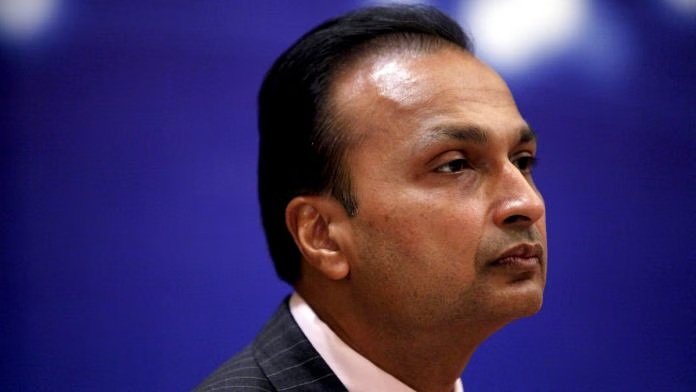CBI alleges that the invested funds were siphoned off through multiple layers of transactions, demonstrating a “systematic diversion of public money.”
NEW DELHI (India CSR): In a significant development in India’s ongoing battle against corporate fraud, the Central Bureau of Investigation (CBI) has filed chargesheets against industrialist Anil Ambani and former Yes Bank CEO Rana Kapoor, along with several associated entities and family members. This case, which centers on alleged fraudulent transactions causing massive losses to Yes Bank, highlights systemic issues in banking and corporate governance. The chargesheets, filed on September 18, 2025, detail a complex web of quid pro quo arrangements, fund diversions, and violations of financial norms, resulting in an estimated wrongful loss of Rs 2,796.77 crore to the bank.
This scandal not only underscores the vulnerabilities in India’s financial sector but also raises questions about accountability among high-profile business figures.
Background on the Key Players
Anil Ambani, the younger brother of billionaire Mukesh Ambani, heads the Anil Dhirubhai Ambani (ADA) Group, a conglomerate with interests in infrastructure, finance, and entertainment. Once a powerhouse in the Indian business landscape, the ADA Group has faced severe financial distress in recent years, with several of its companies, including Reliance Capital Ltd, Reliance Commercial Finance Ltd (RCFL), and Reliance Home Finance Ltd (RHFL), struggling under mounting debt. Ambani served as chairman of the ADA Group and a director of Reliance Capital Ltd, the holding company for RCFL and RHFL, during the period in question.
Rana Kapoor, co-founder and former managing director and CEO of Yes Bank, was a prominent figure in India’s private banking sector. Under his leadership, Yes Bank grew rapidly but later came under scrutiny for risky lending practices that contributed to its near-collapse in 2020. Kapoor was arrested in 2020 on separate money laundering charges and has been implicated in multiple fraud cases. His family members, including wife Bindu Kapoor and daughters Radha Kapoor and Roshni Kapoor, own several entities that allegedly benefited from the transactions in this case.
Yes Bank, a private lender established in 2004, faced a liquidity crisis in 2019-2020, leading to a government-led bailout. The bank’s exposure to stressed assets, including loans to the ADA Group, played a role in its downturn. The CBI’s involvement stems from complaints filed by Yes Bank’s Chief Vigilance Officer in 2022, which triggered two criminal investigations.
The Core Allegations: A Quid Pro Quo Scheme
The CBI’s chargesheets outline a conspiracy where Ambani and Kapoor allegedly colluded to divert public funds from Yes Bank into debt-ridden ADA Group companies. According to investigators, in 2017, Yes Bank invested approximately Rs 2,045 crore in RCFL and Rs 2,965 crore in RHFL through non-convertible debentures and other debt instruments. These investments were approved despite clear red flags: Care Ratings had placed ADA Group companies “under watch” due to their deteriorating financial health, signaling high risk.
The approvals bypassed standard risk assessment protocols, with Kapoor personally overriding concerns to facilitate the deals. In return, RCFL and RHFL allegedly provided concessional loans and financial facilities to unprofitable companies linked to Kapoor’s family. This created a classic quid pro quo arrangement, where Yes Bank’s funds were funneled into Ambani’s struggling firms, and Kapoor’s entities received undue benefits.
Further complicating the matter, the CBI alleges that the invested funds were siphoned off through multiple layers of transactions, demonstrating a “systematic diversion of public money.” This involved rotating funds via shell companies and intermediaries to obscure the trail. For instance, Reliance Nippon Mutual Fund, a subsidiary of Reliance Capital, invested Rs 1,160 crore in debentures of Morgan Credits Pvt Ltd, a company owned by Kapoor’s family, between 2017 and 2018. These actions were purportedly carried out on Ambani’s instructions, further entangling the two parties.
The total fraudulent transactions are estimated at around Rs 6,000 crore when considering the broader ecosystem of loans and investments, though the direct loss to Yes Bank is pegged at Rs 2,796.77 crore. This figure represents not just the principal amounts but also the opportunity costs and financial strain on the bank, which ultimately required a bailout. The CBI has described this as a deliberate abuse of position by Kapoor, who leveraged his authority to direct public funds into high-risk ventures for personal and familial gain.

Timeline of Events
The roots of this case trace back to 2017, when the initial investments were made. By 2019, Yes Bank’s financial woes became public, leading to regulatory interventions. In March 2020, the Reserve Bank of India imposed a moratorium on Yes Bank, and a reconstruction scheme was implemented with investments from State Bank of India and other lenders.
The specific complaints against Ambani and Kapoor emerged in 2022, filed by Yes Bank’s vigilance team. The CBI registered two First Information Reports (FIRs) based on these, initiating probes into criminal conspiracy, cheating, and corruption under the Indian Penal Code and the Prevention of Corruption Act.
Parallel investigations by the Enforcement Directorate (ED) have widened the scope, revealing loan irregularities totaling Rs 17,000 crore linked to Yes Bank under Kapoor’s tenure. While the CBI’s chargesheets focus on the ADA Group transactions, the ED’s probe includes attachments of assets worth over Rs 1,800 crore in related cases, such as those involving real estate developer Sanjay Chhabria and businessman Avinash Bhosale.
The chargesheets were filed before a special CBI court in Mumbai on September 18, 2025, marking a culmination of over two years of investigation. This includes forensic audits, witness statements, and analysis of financial records.
Responses from Involved Parties
Reliance Infrastructure Ltd (RInfra), part of the ADA Group, has distanced itself from the case, clarifying that the chargesheets pertain specifically to RCFL and RHFL, which are no longer under Ambani’s control following bankruptcy proceedings. In a stock exchange filing, RInfra stated that the development has “no business impact” on its operations. Similarly, Reliance Power Ltd echoed this sentiment, emphasizing that the matter is historical and unrelated to current activities.
Rana Kapoor, currently in judicial custody for other cases, has not publicly responded to the latest chargesheets. His family entities have previously denied wrongdoing, claiming all transactions were legitimate business dealings.
Broader Implications and Ongoing Developments
This case is part of a larger crackdown on banking frauds in India, following scandals like the Punjab National Bank-Nirav Modi case and the IL&FS collapse. It exposes how influential figures can manipulate financial systems, leading to public losses—Yes Bank’s depositors and shareholders bore the brunt, with the bank’s stock plummeting during the crisis.
From a regulatory standpoint, it underscores the need for stronger oversight on private banks’ lending practices. The RBI has since tightened norms on CEO tenures and risk management, but cases like this reveal persistent gaps.
On social media platform X (formerly Twitter), reactions have been swift. Posts from users and news outlets highlight the scale of the fraud, with some calling for swift justice. For instance, discussions emphasize the “systematic diversion” and link it to broader corporate accountability issues. Others note the irony of Ambani’s fall from grace, contrasting it with his brother’s success.
As the case proceeds to trial, potential outcomes include convictions under anti-corruption laws, which could lead to imprisonment and fines. Asset recoveries through ED attachments may provide some restitution to Yes Bank. However, the true test will be whether this deters future malpractices in India’s financial ecosystem.
Table 1: Key Entities and Roles
| Person/Entity | Role/Connection | Involvement |
|---|---|---|
| Anil Ambani | Chairman of ADA Group, Director of Reliance Capital Ltd. | Beneficiary of Yes Bank investments; sanctioned concessional loans to Rana Kapoor’s family firms. |
| Rana Kapoor | MD & CEO, Yes Bank (at the time) | Approved risky investments, abused position to benefit ADA Group and family entities. |
| Bindu Kapoor | Wife of Rana Kapoor | Owner of beneficiary family companies. |
| Radha Kapoor | Daughter of Rana Kapoor | Owner of beneficiary family companies. |
| Roshni Kapoor | Daughter of Rana Kapoor | Owner of beneficiary family companies. |
| RCFL & RHFL | Reliance Commercial Finance Ltd. & Reliance Home Finance Ltd. | Received Yes Bank investments worth thousands of crores. |
| Reliance Nippon Mutual Fund | Subsidiary of Reliance Capital | Channelled large sums into Morgan Credits and Yes Bank bonds. |
Table 2: Financial Transactions Under Scrutiny
| Year | Transaction | Amount (Rs. Crore) | Remarks |
|---|---|---|---|
| 2017 | Yes Bank investment in RCFL (NCDs & commercial debts) | 2,045 | Approved despite “under watch” ratings. |
| 2017 | Yes Bank investment in RHFL (NCDs & CPs) | 2,965 | Approved ignoring high-risk warnings. |
| 2017-18 | Reliance Nippon MF invested in Morgan Credits Pvt Ltd (owned by Kapoor family) | 1,160 | Done on Anil Ambani’s instructions. |
| 2017-18 | Reliance Nippon MF purchased ADA Group debentures from Yes Bank | 249.80 | Facilitated fund movements. |
| 2017-18 | Reliance Nippon MF invested in Yes Bank AT1 Bonds | 1,750 | High-risk bonds, later became controversial. |
Table 3: Losses, Gains, and Legal Action
| Aspect | Details |
|---|---|
| Loss to Yes Bank | Rs. 2,796.77 crore wrongful loss (direct). |
| Unlawful Gains | RCFL, RHFL, ADA Group firms, and Kapoor family entities benefited. |
| Modus Operandi | Quid pro quo – Yes Bank funds into ADA Group; concessional loans/credit to Kapoor family companies. |
| Systemic Issue | Funds siphoned through multiple layers and shell companies, masking diversions. |
| Additional Involvement | Entities like RAB Enterprises, Imagine Estate, Bliss House, Imagine Habitat, Imagine Residence, and Morgan Credits Pvt Ltd. |
| Charges Filed | Under IPC and Prevention of Corruption Act. |
| Court | Special CBI Court, Mumbai (18 September 2025). |
(India CSR)







